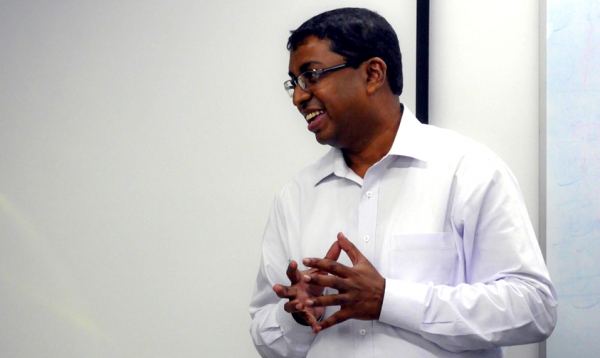President's Counsel Saliya Peiris, Chairman of the Office of Missing Persons (OMP) said the body would look into disappearances of both civilians and combatants, including the members of Sri Lanka's defence forces who have been identified as missing in action.
In a statement today, Peiris said, the key tasks of the OMP consists of (i) tracing missing and disappeared persons, clarifying the circumstances in which the act took place (ii) protecting the rights and interests of those missing/disappeared and their next of kin (iii) identifying avenues of redress for those affected and (iv) making recommendations to the relevant authorities in order to prevent the recurrence of such incidents.
The statement also added,"The Office on Missing Persons (OMP) has officially 'commenced duties following the appointment of the Chairperson and members by His Excellency President Maithripala Sirisena on 28th February 2018 upon the recommendation made by the Constitutional Council comprising representatives of political parties in Parliament and of civil society. The main purpose of the OMP is to address the suffering of the many thousands of families living in all parts of the country whose loved ones have gone missing or disappeared during multiple conflicts in Sri Lanka.
The OMP will address the many cases of missing and disappeared persons irrespective of ethnicity, religion and region, as the office has been established to serve all affected victims. Despite the passage of time and multiple commissions established by successive governments, many of these families, not knowing the fate of their loved ones continue to suffer and remain engaged in a search for truth.
The missing and disappeared cases that the OMP will examine cover both civilians and combatants, including several thousand members of the Armed Forces, Police and Civil Defence Force who have been identified as missing in action, in addition to members of various armed groups who were party to Sri Lanka's conflict.
We the seven members of the OMP, represent a cross-section of society, comprising individuals who are experienced in the field of human rights as activists, public servants and professionals, including a family member of a disappeared individual and a retired legal advisor to the Sri Lanka Army. We are deeply committed to the welfare of all the victims of Sri Lanka's conflicts and we are conscious of the duties entrusted to us by Parliament. We are also mindful of the need to perform our functions impartially and objectively. Moreover, our obligations to the disappeared, the missing and their families are paramount in this endeavour.
Given the magnitude of the problem and the complexity with respect to the multiple tasks required to search for the missing and the disappeared, the OMP will function as a permanent office, as legislated. In its design the OMP is distinct from previous state mechanisms to deal with disappearances, which were temporary in duration, and served largely to document and recommend, as opposed to being a permanent institution tasked with investigation and tracing. It will be the task of the present members to establish a credible, efficient and strong institution, which over a period of time will be able to provide relief to the many affected persons and communities.
In doing so, the OMP will ensure that the efforts of previous commissions to examine and investigate disappearances will inform the design of procOsses and structures of the OMP. In addition, the OMP will employ a consultative approach, speaking to victims and other stakeholders, whilst carefully considering key recommendations made to the Consultation Task Force on Reconciliation Mechanisms (CTF). Victim-centeredness will te a guiding principle for the operationalization of the OMP. lt is, however, important to recognize that the OMP is one of four institutions and of multiple measures envisaged by the Government to ensure reconciliation and lasting peace within our nation.
We recognize that the establishment of such a mechanism is long overdue. The families of the disappeared and of the missing have suffered the tragic loss of their loved ones. Many of these families have waited years, if not decades, for answers as to whether their loved ones are alive or dead. This long wait has deepened their anguish, frustration and trauma. In what we hope is a shared vision for lasting peace and co-existence, we invite the people of Sri Lanka to provide us the strength and support required to achieve the objectives of the OMP Act."










